霜降
Frost’s Descent
寒露
Cold Dew
Cold Dew (Hanlu) falls on October 8 this year on the Gregorian calendar. Dew is seen as an indicator of the start of the cold season in China. Compared with White Dew (Bailu), the temperature around Cold Dew is much lower and dew on the ground almost turns into frost. It’s a transition from coolness to coldness, after which, the temperature drops fast and the nights turn frigid. Clear skies, golden leaves… the north of China is now in late autumn.
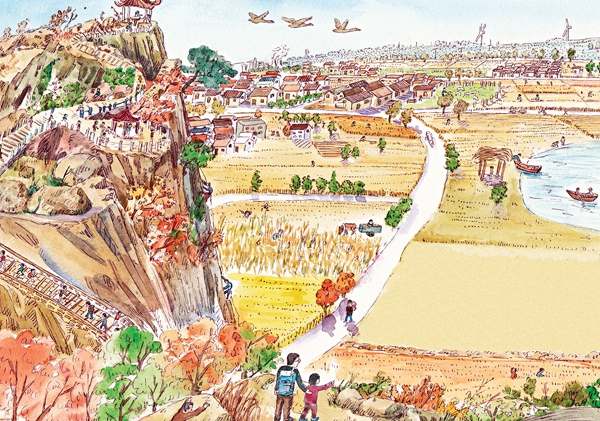
The change of season is apparent around the Cold Dew. There’s a sharp contrast between South and North China. In the north, snow can be seen in some areas, while in the south, the cool autumn is just beginning.
This is the prime season to appreciate chrysanthemums across the country. Chinese people have appreciated them since ancient times for their hardiness and colorfulness. Poems about chrysanthemum flowers are also plentiful. Apart from enjoying the blooms, people also drink chrysanthemum wine.
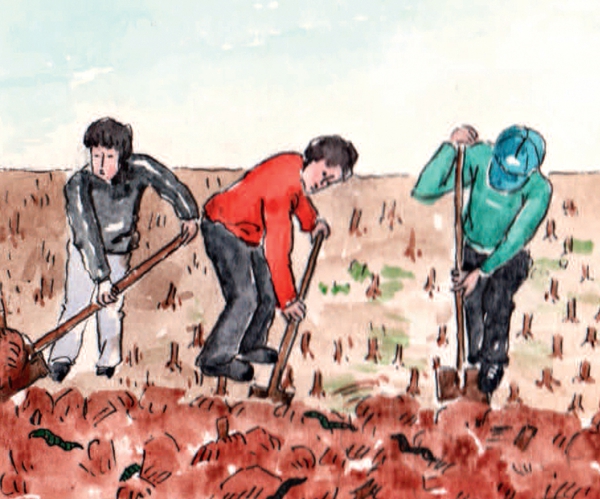
Wild geese fly southward between the White Dew and Cold Dew. At this time, the wild geese that set out earlier have already arrived. As the saying goes “first come, first served,” those that arrive in the south last are treated by the first arrivals as “guests.” There’s a leader who leads the flock, and the followers fly in a row or a “Y” formation, which changes from time to time.
There’s an important festival associated with Cold Dew, which is the Chongyang Festival or the Double Ninth Festival. It is on the 9th day of the 9th lunar month on the Chinese calendar. People go on sightseeing tours, climb mountains, carry dogwood, and eat Double Ninth cakes to celebrate this exciting festival. Since autumn is the golden season for harvesting, people have always had a special feeling for this festival.
Chinese ancients believed that nine was the largest number. According to the yin/yang dichotomy that forms the basis of the Chinese view of the world, yin represents the elements of darkness and yang represents life and brightness. The number nine is regarded as yang. Hence the name Chongyang, meaning “double yang.” In addition, the Chinese word for “nine” is a homophone for “long,” so “double ninth” implies a long and healthy life. Aptly, the festival is traditionally a holiday for the elderly.
There are many poems written about this festival. The most popular one is “Thinking of My Brothers in Shandong on the Double Ninth Festival” by Wang Wei (701-761):
All alone in a foreign land
I am twice as homesick on this day.
When brothers carry dogwood up the mountain
Each of them a branch – and my branch missing.
霜降
Frost’s Descent
Frost’s Descent (Shuangjiang) falls on October 23 on the Gregorian calendar this year. After this solar term, dew becomes frost as the weather gets colder with each passing day. Frost is formed when the temperature of the land surface drops below 0oC.
Frost’s Descent is the last solar term in autumn, and it is also the transition period from autumn to winter. The temperature drops sharply at this time of the year, plants and grasses begin to wither, and crops which are not hardy enough stop growing and wait to be harvested. The temperature difference between North China and South China is still big. In most northern provinces, the average temperature drops below 0oC, while in the south, frost remains unseen.
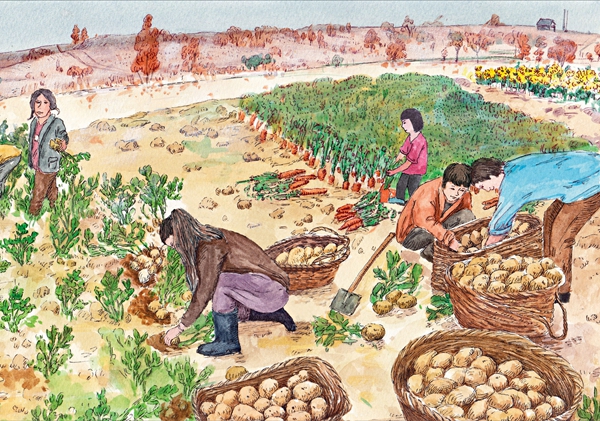
Maple leaves covered in frost are seen as the most beautiful scenery in late autumn. When most plants are withered, the orange and red maple leaves remain on trees all over the mountains, glowing red like flames in the sunlight. The Fragrant Hills in the northwest of Beijing are famous as a sight to enjoy in the fall.
On pond surfaces, lotus leaves drop their heads and wither. Beneath are lotus roots waiting to be dug out and delivered to dinner tables.
Almost all plants wither after Frost’s Descent. However, it’s also the best time for yams, cabbages, and carrots to be harvested.
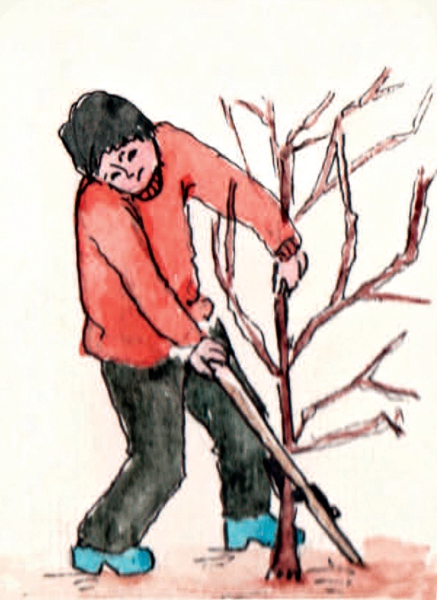
People eat persimmons around Frost’s Descent as they are fully mature. Persimmons with frost on the surface are sweetest. It’s said that eating such persimmons can prevent you from catching a cold in winter. They can be eaten fresh or as a preserved fruit.
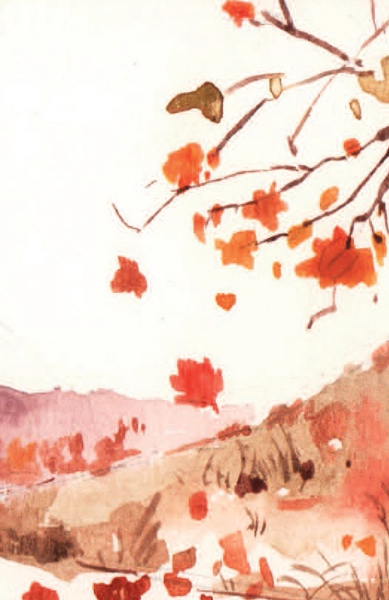
The vitamins and sugar that persimmons contain are normally one or two times higher than those in other fruits. If you eat one each day, then the vitamin C it gives you can meet half your body’s daily requirements. However, though delicious, persimmons shouldn’t be eaten on an empty stomach and people with diabetes or dyspepsia should exercise restraint. Besides, as this is the time when hairy crabs are on the market, as both crabs and persimmons are considered to be a “cold” food in Chinese culture, it’s best not to eat them at the same sitting.
It’s pretty dry now, which causes much coughing. In order to protect our lungs, fresh fruits and vegetables are the best choice. Besides, traditional Chinese medicine believes this is a good time for eating porridge as it’s warm and easily digestible.
(Compiled by China Today based on The Twenty-Four Solar Terms Published by Dolphin Books)